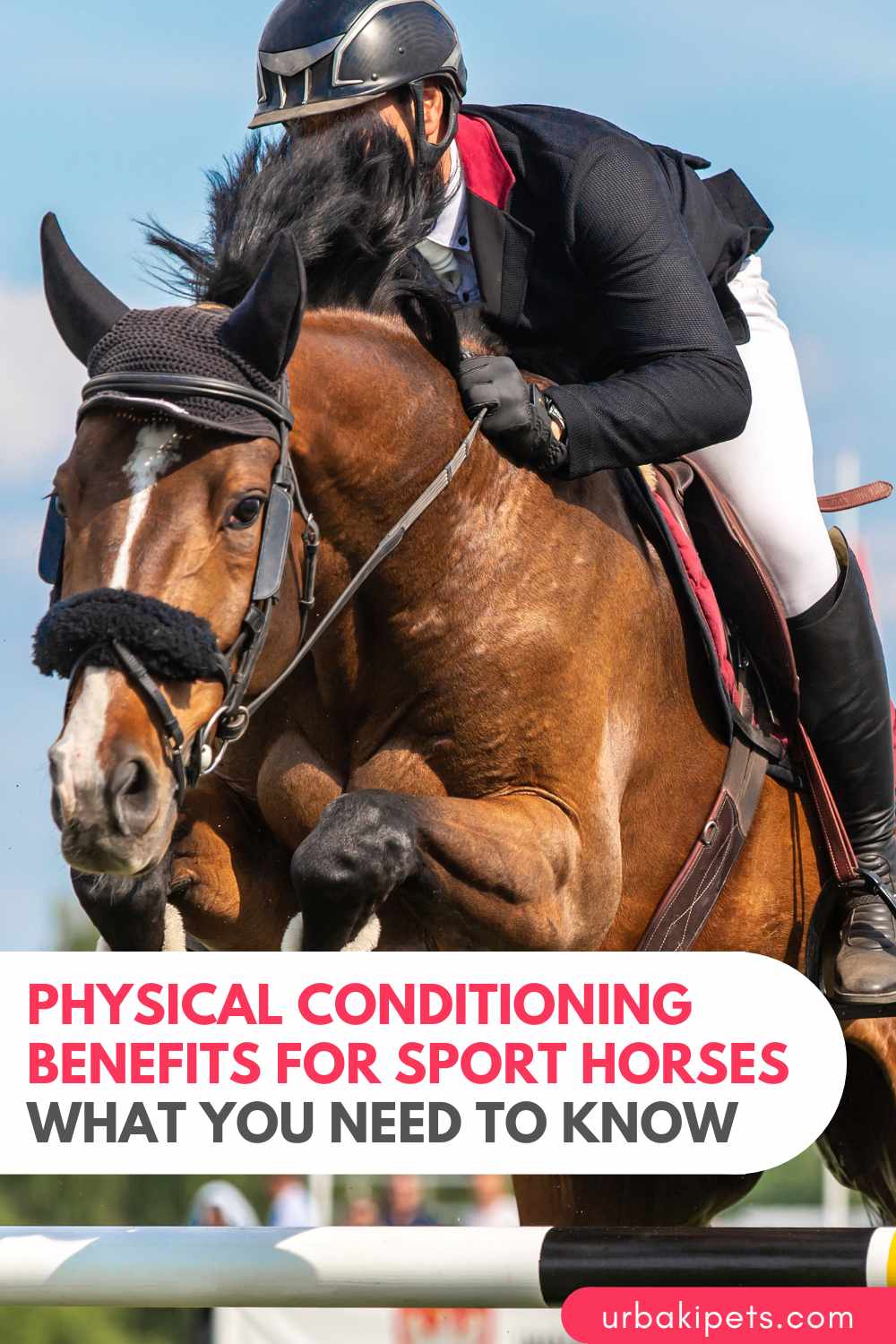Physical Conditioning Benefits for Sport Horses - What You Need to Know

For sport horses, physical conditioning plays a crucial role not only in boosting performance but also in promoting overall health, preventing injuries, and supporting mental well-being.
Whether your horse competes in dressage, show jumping, eventing, endurance, or any other discipline, a consistent and well-planned conditioning program forms the backbone of their success.
Understanding the full range of benefits conditioning offers helps both horse and rider maintain confidence, safety, and enjoyment throughout the competitive journey.
Enhancing Athletic Performance Safely
Sport horses rely on a combination of strength, stamina, flexibility, and balance to perform at their best. Physical conditioning improves all these aspects by increasing muscle development, cardiovascular fitness, and joint mobility.
When a horse’s body is prepared gradually through aerobic and anaerobic work, they can sustain longer training sessions and recover more quickly afterward.
Effective conditioning isn’t just about pushing a horse to peak effort; it starts with building a solid foundation.
This includes exercises such as trotting over varied terrain, hill work, and controlled cantering, which promote muscle growth and endurance without causing excessive fatigue or injury.
Incorporating variety also prevents mental boredom, which keeps horses engaged and responsive. The result is a horse that moves more efficiently, with greater suppleness and power, all while maintaining calmness and focus.

Reducing the Risk of Injury
Injuries in sport horses are often the result of muscle fatigue, uneven strain, or lack of flexibility. Conditioning programs help strengthen tendons, ligaments, and muscles, preparing the horse’s body to better absorb the physical stresses of intense work.
Gradual progression is vital—rushing a horse into heavy work before they are physically ready increases the risk of strains, sprains, or chronic conditions.
Another important benefit is improved coordination and proprioception, the horse’s ability to sense their body position and movement.
Training that includes balance work, lateral movements, and obstacle navigation sharpens this sense, helping the horse adjust their footing and posture in real time.
This skill reduces stumbles and missteps during competition or trail work, making your horse safer and more confident.
Supporting Joint and Bone Health
Healthy joints and bones are essential for any horse involved in demanding activities. Low-impact conditioning activities—such as walking over poles, swimming, or trail riding—stimulate bone density and encourage the production of joint fluid that lubricates cartilage.
These exercises allow horses to build strength without the pounding and wear that come with intense arena work.
For young sport horses still growing, conditioning encourages proper musculoskeletal development, reducing future risk of orthopedic problems. For older horses, it can help maintain mobility and comfort, potentially extending their active careers.
By protecting joints and reinforcing skeletal strength, conditioning helps horses stay sound longer and enjoy pain-free movement.

Improving Focus and Mental Readiness
A well-conditioned horse is often a more mentally balanced horse. Physical fitness reduces fatigue and stress, which in turn lowers anxiety and irritability during training or competition.
When a horse feels strong and capable, they are more likely to respond willingly to cues and maintain focus.
Conditioning that incorporates variety, such as changes in terrain, rhythm, or exercises, keeps the mind engaged and prevents boredom. This mental stimulation is important for preventing behaviors like resistance, distraction, or burnout.
Regular conditioning sessions also build a reliable routine, giving horses a sense of security and predictability that enhances their mental readiness.
Aiding in Recovery After Exercise
The body’s ability to recover efficiently after exertion is a vital component of performance. Conditioning improves cardiovascular and respiratory systems, which regulate heart rate and oxygen delivery during and after exercise.
Fit horses experience quicker reductions in heart and breathing rates post-work, signaling effective recovery.
Faster recovery means less muscle soreness, inflammation, and fatigue, allowing horses to train more consistently with fewer breaks. This is especially important for competitions involving multiple days or intense schedules.
Well-conditioned horses can bounce back faster, reducing downtime and enhancing overall performance longevity.

Establishing a Sustainable Training Rhythm
Perhaps one of the most overlooked benefits of conditioning is the establishment of a healthy, sustainable training rhythm. Conditioning is not about sudden bursts of intense activity but rather a balanced progression that includes warm-ups, targeted exercise, cool-downs, and rest.
Creating a rhythm that respects the horse’s limits encourages longevity and enjoyment of the sport.
Adequate rest days and cross-training prevent overuse injuries and mental burnout, helping horses stay motivated and physically sound.
Conditioning also teaches riders to listen to their horse’s responses and adjust training intensity as needed, ensuring that every session supports gradual improvement rather than strain.
Did you find this post useful or inspiring? Save THIS PIN to your PETS Board on Pinterest!


You may also like